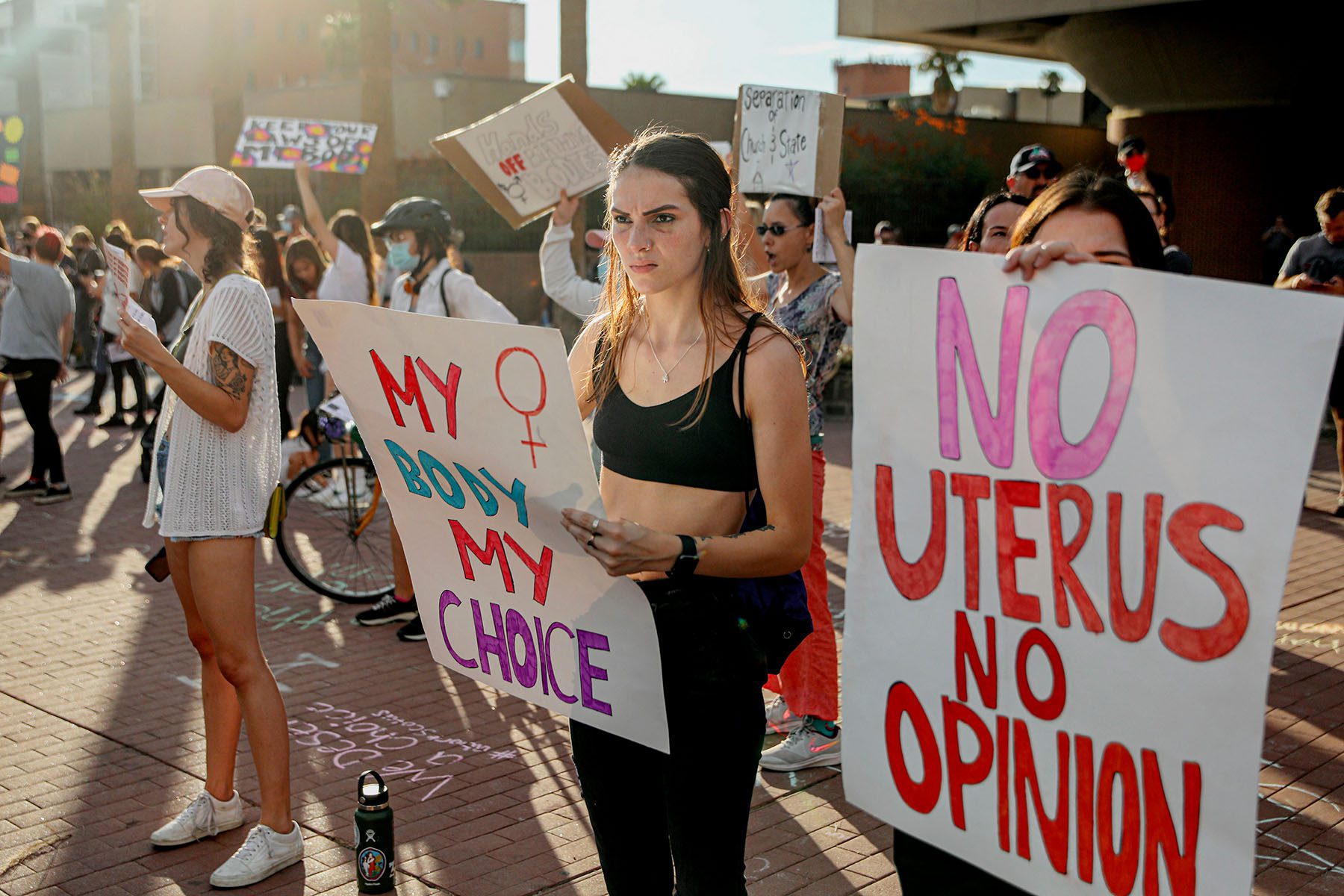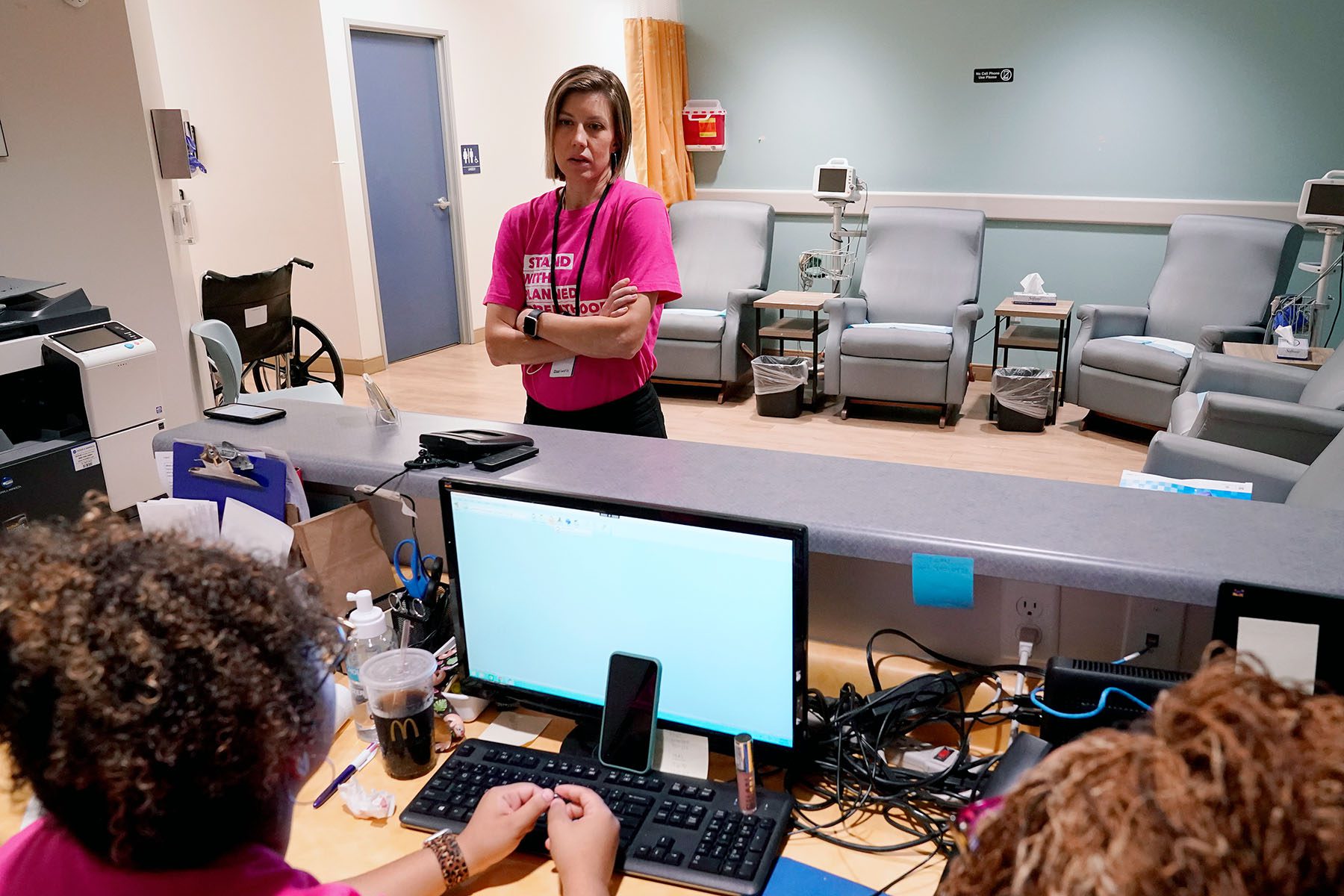When the Supreme Court overturned Roe v. Wade on June 24, almost every clinic in Arizona immediately stopped providing abortions, worried that a ban passed in 1864 might now outlaw the procedure entirely.
Five days later, they seemed validated. Arizona Attorney General Mark Brnovich said abortion was illegal in the state, and those who provided it were subject to criminal penalties. It did not matter, he said, that the state had passed a new law just months before allowing abortions until 15 weeks of pregnancy.
But it was only the beginning. Over the next three and a half months, the laws would bounce from court to court as different judges offered different interpretations of the right to abortion in Arizona and whether clinics could provide any abortions at all.
Each time a decision has been issued, it’s been difficult to gauge how long it will even have an effect.
“This has been the most insane roller coaster ride I have ever been on,” said Dr. Jill Gibson, the medical director at Planned Parenthood Arizona. “We feel like we’re constantly having whiplash.”
The uncertainty of the legal back-and-forth has destabilized abortion provision in Arizona — making it harder for clinics to retain staff, forcing patients to leave the state for care, and rendering it near impossible for people to know if they are legally allowed to get an abortion in the state. Even now, with the state’s total ban blocked, patients and providers alike are unsure how to proceed.
On four separate occasions, Arizona state courts have issued new decisions on the state’s abortion laws:
A July 12 decision blocked a fetal “personhood” law that would have treated abortion as murder. A day later, clinics in the state resumed providing abortions and Brnovich filed his own suit to officially reinstate the 1864 ban.
On September 22, a state judge ruled that the total abortion ban — which has no exceptions for cases of rape or incest — was the law of the land. Once again, clinics had to stop providing abortions in Arizona, canceling patients’ appointments and redirecting them to clinics in California, New Mexico and Nevada. An appeals court stepped in once again October 6, issuing a different ruling: Actually, the state’s total abortion ban should be blocked while it was challenged in court. Now, abortion in Arizona would instead be banned for people at 15 weeks and later in pregnancy — a significant restriction, but far less onerous than the law that had been enforced the past two weeks.
Clinics are already feeling the impact of their brief closures. Multiple clinic leaders told The 19th they lost staff during the periods when they couldn’t provide abortions, nurses and administrative personnel who worried that losing abortion services could spell longer-term trouble for the clinics. Even now, the looming threat of another ban is still a factor driving clinic employees to seek other work.
But the impact has been most heightened for patients — many of whom do not know what is legal until they receive a call from the clinic saying their abortion had to be canceled.
“Arizona has really been in a state of chaos since June. It’s really felt like every two weeks the law switches on us,” said Eloisa Lopez, executive director of the Abortion Fund of Arizona. “The patients are the last people to understand what’s happening.”
When all abortions were outlawed, Dr. Gabriella Goodrick, who owns Phoenix-based Camelback Family Planning, set up a telemedicine program for patients to get medication abortion pills from California. She would talk patients through the procedure, and then set them up for a virtual appointment with a doctor she worked with two hours away, just across the Arizona-California border.
That doctor would get medication abortion pills, known as mifepristone and misoprostol, mailed to a California post office, where patients could pick them up, though they were advised to take both pills in the state of California — a stipulation that could require multiple trips to the border or an overnight stay. (Lawyers aren’t sure whether a state abortion ban could apply to someone taking the misoprostol, which is advised to be administered 24 hours after mifepristone.)
About 15 of her patients used that service, she estimates. If the state’s abortion ban is outlawed, she plans to resuscitate that program.

Legally, it’s not clear what comes next. The state could ask the Arizona Supreme Court to reinstate the state’s total abortion ban, but when that might happen is hard to know. State lawmakers could repeal its 1864 ban, but the legislature is not in session and has not come back to undo the prohibition. (Republicans currently hold majorities in both chambers of the state legislature, but by very narrow margins.)
For now, providers worry, patients are falling through the cracks. Some had appointments canceled when abortion was outlawed and may not have learned that the procedure is legal once again. Others weren’t able to pull together the money, time off work or child care to make another journey back. Only six clinics provide abortion in Arizona, and all are in Phoenix or Tuscon.
Other patients are simply too nervous now that they’ve seen how quickly the laws have changed.
“A lot of patients gave up. They’re scared,” Goodrick said. “Some are worried. Is it illegal? Is it going to change tomorrow?”
She does her best to reassure patients, telling them that she thinks abortion will remain legal in the state for at least a few weeks. But when they ask her if she’s sure — how she knows — she has to tell them she isn’t.
That fear is already pushing some patients to keep going out of state for abortions, even if they could theoretically get them in Arizona, Gibson said. It’s a journey that can cost hundreds or even thousands of dollars, depending on where people travel. For many, Las Vegas and Los Angeles are the closest options.
But even with some patients going out of state, clinics are struggling to take care of those who remain. Since the state’s total ban has been lifted, her clinic has been barraged by patients, she said. Two weeks’ worth of appointments were booked in 48 hours. Gibson has spent hours on the phone trying to recruit more doctors to come in and take shifts providing abortions — she needs more staff to account for all the patients they’re seeing.
For some patients, even two weeks feels too long to wait, since the staff can’t guarantee abortion will still be legal. And the burden of going to California is particularly onerous on patients who are undocumented — almost 4 percent of Arizona residents, per 2016 Census data — as well as those who have lower incomes or who are minors.
One woman, who couldn’t get an appointment for a week and a half, elected to travel to another state where she had family, and where she knew abortion wasn’t about to be outlawed.
“You’re going for a major life-changing event,” Gibson said. “You want to know for certainty that you can get it.”
Even the few weeks without abortion access have been exceptionally difficult to witness, she said. Each time a ban has come back, she’s had to call patients and cancel their appointments. She’s spoken with thousands of pregnant patients who were desperate to get an abortion. There were so many people she couldn’t help. One, who came a week before Arizona’s total ban was lifted, was a 21-year-old nursing student who became pregnant after a condom broke and the Plan B pill failed.
“We were, like, ‘Let’s think through your options,’” Gibson said. “And she looked at me and said, ‘I don’t have options.’”







